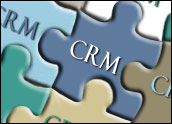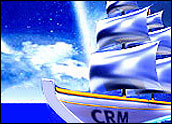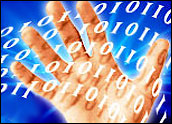
Part 1 of this two-part series explores the ways in which governments are attempting to use CRM technologies to improve services.
Like their peers in the private sector, government agencies are under pressure to deliver services around the clock and in digital form.
“Customers increasingly prefer to serve themselves whenever and by whatever means they wish,” Gina Pearson, director of the National Energy Information Center, U.S. Department of Energy’s Energy Information Administration, told CRM Buyer. “As technology developments enable us to better meet the expectations of our customers, those developments can also lead to higher customer expectations.”
That raised bar is sometimes floating on little more than air, given the deep deficits and steep budget cuts most government agencies are struggling with today.
“Government agencies are catching on to the need for CRM and other technologies. They have to — you can’t do more with less unless you have some efficiencies built in,” Jerine Rosato, Port of San Diego’s program manager of strategic management services and manager of customer relations, told CRM Buyer.
Constituent Chameleons
The problem with treating constituents as customers is that individuals often fit in multiple categories with vastly different needs. The customer base is also more diversified than is typical within the private sector.
“For example, our customer segmentation includes land tenants, cargo ships, cargo ship captains, cruise ships and captains, cruise passengers, board of port commissioners, and people who want to book birthdays in one of several parks or just get the rules and regulations for one or another activity,” explained Rosato. “We can’t afford to let any of it fall through the cracks.”
Not to worry; citizens won’t let things fall through the cracks quietly.
“Recent citizen surveys conducted by GSA’s (General Services Administration) Office of Citizen Services confirm that citizens want and expect consistent information across all channels — Web, call center, e-mail, etc.,” Stuart Willoughby, director of the USA Services’ Federal Solutions Division at GSA, told CRM Buyer.
“GSA’s Office of Citizen Services integrated its contact center 1 800-FED INFO, database for telephone and e-mail, and it’s Web FAQ (frequently asked questions) application last year on USA.gov along with our chat application,” explained Willoughby. “All agents now refer to this single FAQ database ensuring that citizens receive consistent, clear and accurate information.”
At first, Rosato said, the Port used its SAP CRM to handle ordinary transactional tracking and information dissemination as well. “But it’s really kind of blossomed. Now we use it to look for emerging trends, to avoid pitfalls in public opinion, and even to predict issues before the board of commissioners even ask about them.”
The Regiment of Rules
Despite the many uses of CRM for government use, agencies are not allowed to just run out and buy a product at will.
In October 2005, the GSA created the Citizen Service Levels Interagency Committee (CSLIC) to identify standards and metrics for measuring citizen support effectiveness on the federal level. Over 35 agencies participate in the CSLIC and together they have developed 37 standards, 18 guidelines and 18 recommendations.
CRM vendors, then, have to measure up to these rules and regulations before they can sell their products to a government agency. RightNow and SAP are two that have met or exceeded the standards.
Patriots, Politics and the Government’s New Beat
RightNow released a new version just last April to leverage the growing trend in e-government. RightNow Federal Government software is offered in both on-demand and on-premise models, and features government terminology, pre-configured workflow processes, government profiles and a Freedom of Information Act interface among other reporting tools and survey features.
Interestingly, Illinois Sen. Barack Obama’s presidential campaign is using RightNow to power its Web site’s Answer Center, which uses artificial intelligence to constantly improve how users and contact center staff search for information. Since inception in April 2007, 1.3 million visitors have used Obama’s Answer Center.
SAP has been in play since government agencies first took an interest in CRM. The Port of San Diego was one of the first adopters; the agency launched SAP five years ago. It’s still running the technology. “We were a bit of an anomaly when we first launched SAP, but not so much now,” noted Rosato, who is charged with the care and feeding of all SAP modules, among her other duties at the Port. “It’s an ever-changing road forward.”
Miserly Big Brother
“We’re seeing a recent trend, over the last two years, where government is finding ways to integrate CRM with their other systems to take care of everything from their supply chains and emergency response teams like Hazmat to citizen issues like pot holes, downed traffic lights and delayed garbage pick-up,” Dave Kuenzel, CRM solutions principal for SAP Public Services, told CRM Buyer.
“More and more federal agencies are recognizing the need to integrate customer service operations across different parts of the organization, including the customer contact center, public affairs office and the Web site,” said Pearson. “However, the organizational, resource and technology challenges to achieving this integration are formidable.”
This, of course, brings us back to the bottom line and the scarcity of money. That does not mean, however, that government agencies are willing to sacrifice control in order to pinch pennies.
“What we are not seeing is a lot of hosted product. Government agencies typically like to have ownership,” added Kuenzel.
Citizens may have reason to cheer over government’s propensity to keep information close and under wraps. Theoretically, information is more secure in one place than in two so perhaps this will help prevent some identity theft and curb the potential for a third party to sell private citizen information. On the other hand, the government could collect more data than we realize and one day use it against us. It certainly gives the Patriot Act a lot more reach. The IRS can’t be far behind.














































Social CRM
See all Social CRM